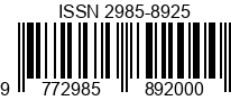Pudarnya Kewenangan Peradilan Tata Usaha Negara dalam Sengketa Perizinan atas Undang-Undang Cipta Kerja (Omnibus Law)
DOI:
https://doi.org/10.54298/tarunalaw.v2i01.178Keywords:
Fiktif Positif, Keputusan Tata Usaha Negara, Sengketa PerizinanAbstract
Abstract
The State Administrative Court has the authority to examine, adjudicate and decide a dispute within the administrative scope. The authority in question has 2 types, namely the relative and absolute authority or competence of a judiciary that must be understood by the reader. This research refers to the State Administrative court. Absolute competence itself discusses the jurisdiction of the court can handle any dispute according to time standards by the parties in order to file an application. This is called negative fictitious and positive fictitious. Negative fictitious was originally known in the Law on Agriculture until it was abolished with positive fictitious as stated in the State Administration Law. The positive fictitious also underwent changes contained in the Job Creation Law. Positive fictitious changes in the Job Creation Law will be the object of research in this study. This article will discuss the waning authority of the TUN Court, especially licensing disputes. The dispute discusses the approval given by the government (TUN Agency/Official) to individuals or legal entities to carry out certain activities. The lack of authority of the Court has become a public concern because there are prolonged problems both from the blurring of authority it has lost, ambiguity in the Article and the consistency of the TUN Court to examine, try and decide TUN cases. In writing this study, the author uses a juridical-normative research method that discusses the benchmarks and implementation of the statutory system in practice in the TUN court as a whole.
Keywords: Authority, Positive Fictitious, State Administrative Court, Licensing Disputes.
Abstrak
Peradilan Tata Usaha Negara mempunyai kewenangan untuk memeriksa, mengadili dan memutus suatu sengketa dalam lingkup keadministrasian. Kewenangan yang dimaksud mempunyai 2 jenis yakni kewenangan atau kompetensi relatif dan absolut suatu peradilan yang harus dipahami oleh pembaca. Penelitian ini merujuk terhadap pengadilan Tata Usaha Negara. Kompetensi absolut sendiri membahas tentang yurisdiksi pengadilan tersebut dapat menangani sengketa apa saja sesuai standarisasi waktu oleh para pihak agar dapat mengajukan permohonan. Hal tersebut disebut dengan fiktif negatif dan fiktif positif. Fiktif negatif mulanya dikenal dalam UU Peratun hingga dihapuskan dengan fiktif positif yang tertuang dalam UU Administrasi Negara. Adapun fiktif positif juga mengalami perubahan yang termaktub dalam UU Cipta Kerja. Perubahan fiktif positif dalam UU Cipta Kerja akan menjadi objek penelitian dalam penelitian ini. Artikel ini akan membahas tentang pudarnya kewenangan dari Pengadilan TUN khususnya sengketa Perizinan. Sengketa tersebut membahas tentang persetujuan yang diberikan oleh pemerintah (Badan/Pejabat TUN) kepada individu atau badan hukum untuk melakukan aktivitas tertentu. Pudarnya kewenangan Pengadilan ini menjadi perhatian publik pasalnya terjadi masalah berkepanjangan baik dari kaburnya kewenangan yang dihilangnya, ambiguitas dalam Pasal dan eksistensi Pengadilan TUN untuk memeriksa, mengadili dan memutus perkara TUN. Pada penulisan penelitian ini, penulis menggunakan metode penelitian yuridis-normatif yang membahas tolak ukur dan implementasi sistem peraturan perundang-undangan di dalam praktik di pengadilan TUN secara menyeluruh.
Kata Kunci: Kewenangan, Fiktif Positif, Pengadilan Tata Usaha Negara, Sengketa Perizinan.
References
Abdullah, Ujang. “Kompetensi Peradilan Tata Usaha Negara dalam Sistem Peradilan di Indonesia.” PTUN Palembang, n.d.
Andi. “Bias Kewenangan Fiktif Positif Pengadilan Tata Usaha Negara dalam Ranah Perizinan Pasca Terbitnya Undang-Undang Cipta Kerja.” Jurnal of Law and Policy Transformation 6, no. 2 (Desember 2021).
Aprilo, Onma Ezra Rodi, Langgam Ihutan, Eric Halomoan, Anandersah Sinaga, and Santi Hapsari Dewi Adikancana. “Kompetensi Absolut Peradilan Tata Usaha Negara dalam Sengketa Tanah Terhadap Sertifikat Hak Atas Tanah.” Jurnal Hukum Peratun 5, no. 2 (August 31, 2022): 159–74. https://doi.org/10.25216/peratun.522022.159-174.
Elsye, Rosmery and Muslim. Modul Mata Kuliah Hukum Tata Usaha Negara. 1st ed. Sumedang: Fakultas Manajemen Pemerintahan IPDN, 2020.
Hadjon, Philipus M. “Pelaksanaan Otonomi Daerah dengan Perijinan yang Rawan Gugatan.” Medan, 2004.
Irvansyah, Andika Risqi. “Kedudukan Hukum Keputusan Fiktif Positif Sejak Pengundangan Undang-Undang Cipta Kerja.” JAPHTN-HAN 1, no. 2 (June 29, 2022). https://doi.org/10.55292/japhtnhan.v1i2.31.
Koenti, Ishviati Joenaini, and Vinny Victoria Tanawani. “Komparasi Putusan Pengadilan Tata Usaha Negara Terhadap Gugatan Keputusan Fiktif Negatif, Permohonan Terhadap Keputusan Fiktif Positif Dan Perubahannya Pasca Undang-Undang Cipta Kerja,” n.d.
Lathif, Nazaruddin, Mustika Mega Wijaya, and R Muhammad Mihradi. Hukum Administrasi Negara. 1st ed. Bogor: Lembaga Penelitian dan Pengabdian Masyarakat, Universitas Pakuan, 2021.
NG, Marshaal, Sri Suatmiati, and Angga Saputra. Hukum Acara Tata Usaha Negara Indonesia. 2nd ed. Palembang: Tunas Gemilang Press, 2018.
Panjaitan, Budi Sastra. Hukum Acara Peradilan Tata Usaha Negara. 1st ed. Medan: CV. Manhaji Medan, 2016.
Rayhan, Ahmad, Shafiah Taqiyya, and Rika Safitriana. “Kewenangan PTUN Mengadili Kasus Fiktif Positif Perizinan Pertambangan (Studi Kasus Putusan No. 4/P/FP/2020/PTUN.PL).” Primagraha Law Review 1, no. 2 (September 2023).
Wicaksono, Dian Agung, Bimo Fajar Hantoro, and Dedy Kurniawan. “Quo Vadis Pengaturan Kewenangan Pengadilan Tata Usaha Negara dalam Penerimaan Permohonan Fiktif Positif Pasca Penataan Regulasi dalam Undang-Undang Cipta Kerja.” Jurnal Rechts Vinding: Media Pembinaan Hukum Nasional 10, no. 2 (Agustus 2021).
Downloads
Published
How to Cite
Issue
Section
License
Copyright (c) 2024 Muhammad Alvin Nashir Alvin Nashir

This work is licensed under a Creative Commons Attribution-ShareAlike 4.0 International License.
Authors who publish with this journal agree to the following terms:
- Authors retain copyright and grant the journal right of first publication with the work simultaneously licensed under a Creative Commons Attribution-ShareAlike that allows others to share the work with an acknowledgement of the work's authorship and initial publication in this journal.
- Authors are able to enter into separate, additional contractual arrangements for the non-exclusive distribution of the journal's published version of the work (e.g., post it to an institutional repository or publish it in a book), with an acknowledgement of its initial publication in this journal.
- Authors are permitted and encouraged to post their work online (e.g., in institutional repositories or on their website) prior to and during the submission process, as it can lead to productive exchanges, as well as earlier and greater citation of published work (See The Effect of Open Access).














